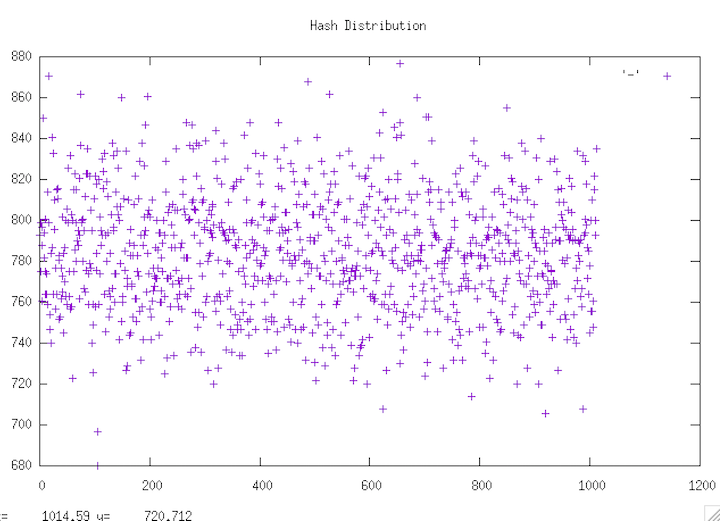Concurrent hashtable
This is a concurrent hashtable implementation in C.
Implementation
The hashtable uses the separate chaining technique as collision resolution strategy. This hashtable works by initially creating an empty array of HASHSIZE buckets. On first insertion to a bucket, a linked list structure is initialized. Each linked list structure contains a pointer to the head, the count of nodes, as well as a lock.
Each node structure contains a value and a next pointer. The nodes do not contain key/value pairs as it was built to store a spell-checking dictionary. However, this can be very easily implemented on each node.
The table supports insert(), find(), and remove() methods currently.
(Note: This is a very naive approach with a constant size hashtable. No load-balancing was implemented.)
Usage
Passing in dictionaries (provided in dictionaries/) as command line arguments will spawn a new thread for each dictionary.
Passing in the option -p before dictionaries will plot the hash distribution. This requires gnuplot to be installed first.
First clone and run make.
Then:
./table dictionaries/francias.txt dictionaries/espanol.txt <more dictionaries...>
./table -p <dictionaries...>
Example distribution plot
The x-axis indicates hashtable buckets, the y-axis indicates the number of linked list nodes.
Notes on concurrency
The hashtable is not lock-free. Additionally, the locks are implemented per linked list (bucket). This allows for manipulation of other buckets without having to lock the entire hashtable.
